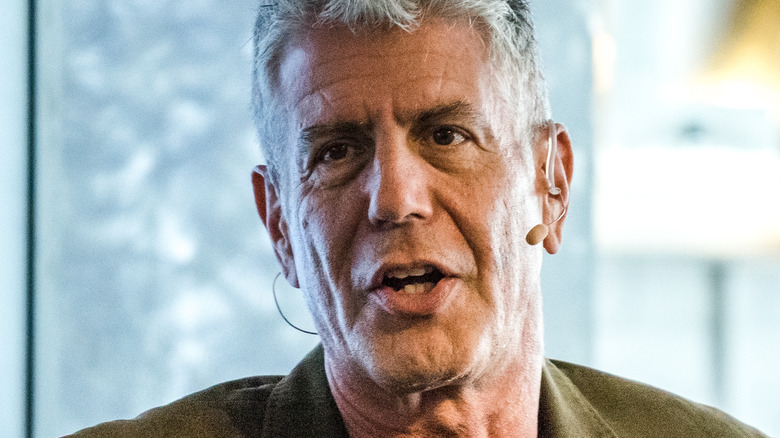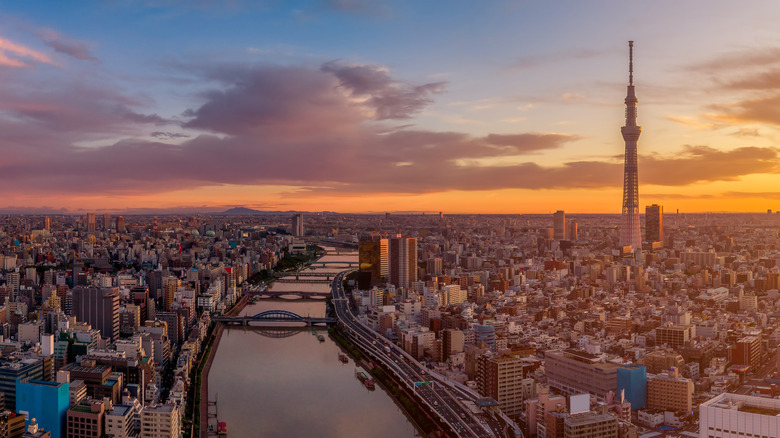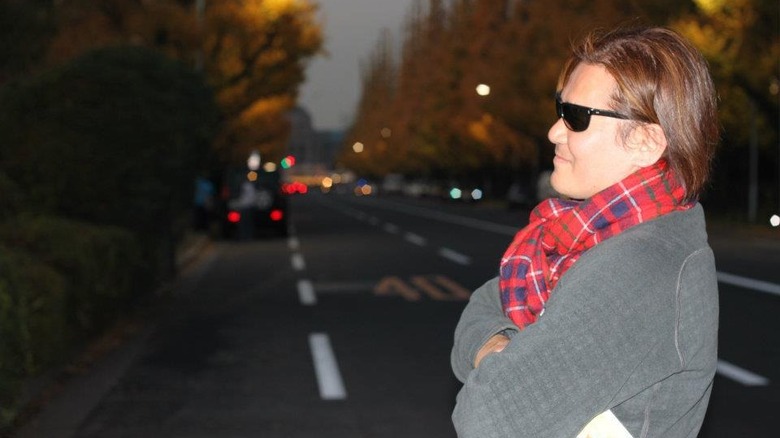The 'Tokyo Fixer' That Changed Anthony Bourdain's Life
Fixers aren't usually spoken of in glowing terms. They are often associated with the world of shady, underhanded dealings. One of the best, Hank Sheinkopf, summed up his job to Vice, saying, "A fixer is someone who can do something other people can't and in a time frame that very few others can accomplish without leaving much of a trail." Fixers often operate in perfectly above-board ways, acting as lobbyists or PR managers, but the title is often associated with illegal activities. Richard Nixon had a team of fixers dubbed "plumbers" to hide his ties to the Watergate Scandal. In pop culture, fixers are rarely good guys, with perhaps the most notable example being the Wolf from Pulp Fiction (played by Harvey Keitel), who specializes in cleaning up murder scenes (via IndieWire).
However, 'fixer' is a very broad term, and there are people outside the realms of politics and crime who use the title and definitely don't cut up bodies. In Roads & Kingdoms, journalist Nathan Thornburgh notes that reporters have their own version of a fixer, that being a person with local contacts that may help the story. Fixers are especially important for journalists reporting from abroad. The Columbia Journalism Review cites the example of Mohannad Sabry, who provided critical assistance to an American journalist in Cairo during the 2011 Egyptian Revolution, at one point talking a police officer out of shooting the man. Not all journalistic fixers engage in such dire dealings, though. Sometimes, they deal in soba.
Tokyo's finest
Shinji Nohara knows where to find the best soba in Tokyo, the best matcha, the best tempura, the best donuts, the best tuna ... you get the idea. Per Vice, Nohara used to be a food writer for various Japanese publications, but these days he's best known for taking some of America's most famous chefs on exclusive tours of Tokyo's best-kept culinary secrets. He is known as the 'Tokyo Fixer,' and he told Roads & Kingdoms that he's not only okay with the word's shady connotation; he actually enjoys it. He owes his reputation in America to the late culinary icon Anthony Bourdain, but Bourdain is equally indebted to Nohara.
Nohara played a vital role in launching Bourdain's television career. Long before the dazzling success of Parts Unknown, the late chef made his TV debut with A Cook's Tour (2002-2003). Its very first episode, the half-hour showcase that introduced the world to its favorite culinary renegade, took place in Tokyo. In preparation for the trip, Bourdain contacted Nohara, at that time still a magazine writer, asking for recommendations on where to eat. As Nohara recalls in Roads & Kingdoms, "People saw the show and said, 'Hey Shinji, can you take us around like you did for him?'" Thus was born the Tokyo Fixer.
Shinji's secrets
Today, Nohara is in high demand. He's given tours to Ricardo Zarate, Adam Perry Lang, and David Chang, among others. It isn't easy to secure his services. Vice reporter Javier Cabral was only able to get a tour because Adam Perry Lang put in a good word for him. Nohara has a strict set of rules for his guests, and when you're in his company, it's Shinji's way or the highway. Period. For starters, he wants to keep Tokyo's best-kept culinary secrets as exactly that: secrets. He did not allow Cabral to release the names of any of the restaurants he took him to, so Vice readers have to suffice with vague descriptions like a soba spot on "the fourth floor of a nondescript high-rise in Harajuku." Good luck finding that.
There are two other big rules that Nohara's guests must follow. Firstly, you aren't allowed to order for yourself. He decides what you eat. Secondly, you are required to foot the bill for his meal and drop him a generous tip while you're at it. If you don't have the culinary connections to see Nohara yourself, he offered Roads & Kingdoms some key tips to help readers find the best food in Tokyo. He said people should leave the beaten path and check out restaurants in side streets, alleys, and the upper floors of high-rise buildings. He also told them what to avoid: "If they have a huge, flashy sign, that's not good."


